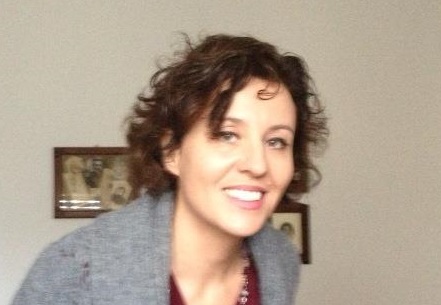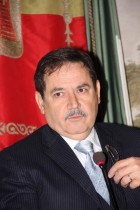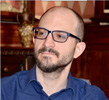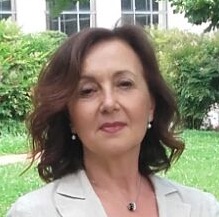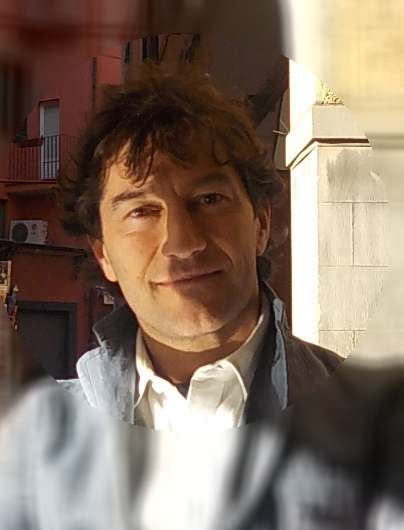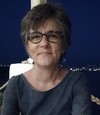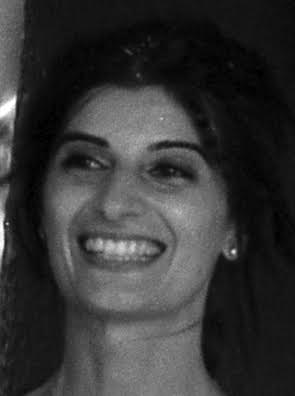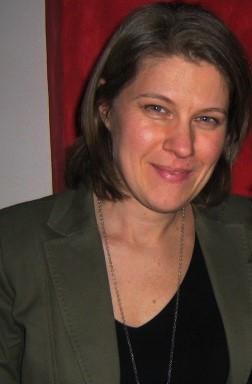Studying at the University of Verona
Here you can find information on the organisational aspects of the Programme, lecture timetables, learning activities and useful contact details for your time at the University, from enrolment to graduation.
Academic calendar
The academic calendar shows the deadlines and scheduled events that are relevant to students, teaching and technical-administrative staff of the University. Public holidays and University closures are also indicated. The academic year normally begins on 1 October each year and ends on 30 September of the following year.
Course calendar
The Academic Calendar sets out the degree programme lecture and exam timetables, as well as the relevant university closure dates..
| Period | From | To |
|---|---|---|
| Sem. IA | Sep 28, 2015 | Nov 8, 2015 |
| Sem. IB | Nov 9, 2015 | Jan 17, 2016 |
| Sem. IIA | Feb 22, 2016 | Apr 24, 2016 |
| Sem. IIB | Apr 25, 2016 | Jun 5, 2016 |
| Session | From | To |
|---|---|---|
| Sessione Estiva | Jun 6, 2016 | Jul 31, 2016 |
| Sessione Autunnale | Sep 1, 2016 | Sep 30, 2016 |
| Sessione Invernale | Jan 23, 2017 | Feb 25, 2017 |
| Session | From | To |
|---|---|---|
| Sesione Estiva | Jul 8, 2016 | Jul 15, 2016 |
| Sessione Autunnale (Solo Scienze del Serv. Sociale: Ven. 04/11/2016) | Nov 21, 2016 | Nov 26, 2016 |
| Sessione Invernale | Apr 3, 2017 | Apr 8, 2017 |
| Period | From | To |
|---|---|---|
| Festa di Ognissanti | Nov 1, 2015 | Nov 1, 2015 |
| Festa dell'Immacolata | Dec 8, 2015 | Dec 8, 2015 |
| Vacanze Natalizie | Dec 23, 2015 | Jan 6, 2016 |
| Vacanze Pasquali | Mar 24, 2016 | Mar 29, 2016 |
| Festa della Liberazione | Apr 25, 2016 | Apr 25, 2016 |
| Festa dei Lavoratori | May 1, 2016 | May 1, 2016 |
| Festa del S. Patrono S. Zeno | May 21, 2016 | May 21, 2016 |
| Festa della Repubblica | Jun 2, 2016 | Jun 2, 2016 |
| Vacanze Estive | Aug 8, 2016 | Aug 15, 2016 |
Exam calendar
Exam dates and rounds are managed by the relevant Humanistic Studies Teaching and Student Services Unit.
To view all the exam sessions available, please use the Exam dashboard on ESSE3.
If you forgot your login details or have problems logging in, please contact the relevant IT HelpDesk, or check the login details recovery web page.
Should you have any doubts or questions, please check the Enrollment FAQs
Academic staff
 cristina.bertazzoni@univr.it
cristina.bertazzoni@univr.it
 sonia.claris@univr.it
sonia.claris@univr.it
 laura.fontecedro@univr.it
laura.fontecedro@univr.it
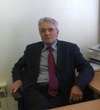
Longo Mario
 mario.longo@univr.it
mario.longo@univr.it
 045 8028393
045 8028393
 elisabetta.madriz@univr.it; elisamadriz@libero.it
elisabetta.madriz@univr.it; elisamadriz@libero.it
 federico.melotto@univr.it; federicomelotto@hotmail.com
federico.melotto@univr.it; federicomelotto@hotmail.com

Migliorati Lorenzo
 lorenzo.migliorati@univr.it
lorenzo.migliorati@univr.it
 045802 8135
045802 8135
 igor.pelgreffi@univr.it
igor.pelgreffi@univr.it
 daniela.princivalle@univr.it
daniela.princivalle@univr.it
 sabrina.tosicambini@univr.it
sabrina.tosicambini@univr.it
Study Plan
The Study Plan includes all modules, teaching and learning activities that each student will need to undertake during their time at the University.
Please select your Study Plan based on your enrollment year.
1° Year
| Modules | Credits | TAF | SSD |
|---|
Cultural Anthropology
Developmental and educational psychology
Sociology and analysis of social dynamics
History of Philosophy
History of Education and Pedagogy
A course to be chosen among the following2° Year activated in the A.Y. 2016/2017
| Modules | Credits | TAF | SSD |
|---|
Teaching methodology and educational planning
Early Childhood Education
Computer Science and Multimedia
Theories and methods of cultural mediation
A course to be chosen among the followingA course to be chosen among the followingSocial and Cultural Geography
A course to be chosen among the following3° Year activated in the A.Y. 2017/2018
| Modules | Credits | TAF | SSD |
|---|
A course to be chosen among the followingA course to be chosen among the followingTheories and techniques of the primary socialization
A course to be chosen among the following| Modules | Credits | TAF | SSD |
|---|
Cultural Anthropology
Developmental and educational psychology
Sociology and analysis of social dynamics
History of Philosophy
History of Education and Pedagogy
A course to be chosen among the following| Modules | Credits | TAF | SSD |
|---|
Teaching methodology and educational planning
Early Childhood Education
Computer Science and Multimedia
Theories and methods of cultural mediation
A course to be chosen among the followingA course to be chosen among the followingSocial and Cultural Geography
A course to be chosen among the following| Modules | Credits | TAF | SSD |
|---|
A course to be chosen among the followingA course to be chosen among the followingTheories and techniques of the primary socialization
A course to be chosen among the following| Modules | Credits | TAF | SSD |
|---|
Legend | Type of training activity (TTA)
TAF (Type of Educational Activity) All courses and activities are classified into different types of educational activities, indicated by a letter.
General Pedagogy [Cognomi A-L] (2015/2016)
Teaching code
4S00738
Teacher
Coordinator
Credits
9
Language
Italian
Scientific Disciplinary Sector (SSD)
M-PED/01 - PEDAGOGY, THEORIES OF EDUCATION AND SOCIAL EDUCATION
Period
Sem. IA, Sem. IB
Learning outcomes
The course aims at providing the essential elements of the pedagogical discourse, and at clarifying its epistemological founding elements. In particular, the course outlines the pedagogic identity and the features that make it different from other similar disciplines, especially philosophy, psychology and sociology, aiming at underlining the interdisciplinary connection. The focus of the first part are the concepts of educability, education, and pedagogy, and the description of the main components of the pedagogic discourse. The course deals with the relation between nature and culture in education, dwelling upon the various pedagogical currents (especially personalism, problematicism, empirism). These topics will be analysed in the light of the main current changes and of the current topical issues.
EDUCATIONAL OBJECTIVES:
The course aims to provide the basic elements of the pedagogic debate by studying in depth some topical subjects. Starting from the results of the most recent scientific research and from the challenger and “traps” of the XXIth Century (crisis of values, of orientation and of education), classes will try to show the central position of pedagogy, useful to face a lot of present crisis and conflicts. After the analysis of some of the most significant proposals, it will be possible to think over aims, methods and educational means that can improve the progress of civilization. In particular the course will focus on education in a pluralistic society.
- Knowledge: funding principles of the pedagogical discourse, interdisciplinary nature, main reflections about objectives, methods, means, culture, relation between teacher and student, environment. Development of the various pedagogical currents, role of pedagogy related to the complexity.
- Understanding: the place of pedagogy among the other educational sciences; understanding of its relevance in recognizing and facing challenges, risks, and opportunities in the contemporary society.
- Application skills: ability of identifying crucial elements in the creation of educational projects taking into account all the different factors.
Program
EXAMINATION TEXTS
General part
- PORTERA, A., BÖHM W., SECCO, L., Educabilità, educazione e Pedagogia nella società complessa. Lineamenti
introduttivi. UTET, Torino, 2007.
Monographic part
- PORTERA, A., Tesori sommersi. Emigrazione, identità, bisogni educativi interculturali, F. Angeli, Milano, 20086.
- BENASAYAG M., SCHMIT G. L’epoca delle passioni tristi, Feltrinelli, Milano, 2008.
- Aa. Vv. Educazione interculturale alla cittadinanza. Carocci, Roma, 2010.
Specific tests will be implemented, and they will be considered as an integral part of the examination programme. For further reading and in-depht analysis about the practical part, one of the following texts (not used in previous examinations) will be used:
- *DELORS, J., Nell’educazione un Tesoro. Armando, Roma, 1997.
- GRANESE, A., Istituzioni di pedagogia generale. CEDAM, Padova, 2003.
- BRUNER, J., La cultura dell’educazione. Feltrinelli, Milano, 1997.
- *SIGURTA' BRAIBANTI S., La bellezza: luogo d'incontro, QuiEdit, Verona, 2015.
- CONTINI M., La comunicazione intersoggettiva fra solitudini e globalizzazione. La Nuova Italia, 2002.
- GARDNER H., Sapere per comprendere. Feltrinelli, Milano, 1999.
- *MILANI L., Lettera a una professoressa, Libreria editrice fiorentina, Firenze
- MARITAIN, J., L’educazione al bivio. La Scuola, Brescia, 1963.
- * BREZINKA, W. L’educazione in una società disorientata. Armando, Roma, 1989.
- PERETTI, M., Valori perenni e pedagogia. La Scuola, Brescia, 1984.
- RICOEUR, P., La Persona, Morcelliana, Brescia, 1997.
- SECCO, L. Dall’educabilità all’educazione, Morelli, Verona, 2000
- *FRABBONI F., Pinto Minerva F., Manuale di pedagogia generale, Laterza, Roma-Bari, 2000.
- NUSSBAUM, M.C., Non per profitto, Mulino, Bologna, 2011
- MORIN, E., I sette saperi necessari all’educazione del futuro. Raffaello Cortina, Milano 2001.
- BAUMAN Z., MAZZEO R., Conversazioni sull’educazione Erickson, Trento, 2012
- BECK U., I rischi della libertà. L’individuo nell’epoca della globalizzazione. Mulino, Bologna, 2000.
*recommended text for students not attending classes.
Examination Methods
Oral examination
Type D and Type F activities
Modules not yet included
Career prospects
Module/Programme news
News for students
There you will find information, resources and services useful during your time at the University (Student’s exam record, your study plan on ESSE3, Distance Learning courses, university email account, office forms, administrative procedures, etc.). You can log into MyUnivr with your GIA login details: only in this way will you be able to receive notification of all the notices from your teachers and your secretariat via email and soon also via the Univr app.
Graduation
Documents
| Title | Info File |
|---|---|
|
|
pdf, it, 99 KB, 13/10/23 |
|
|
pdf, it, 101 KB, 10/04/24 |
List of theses and work experience proposals
| theses proposals | Research area |
|---|---|
| Ambienti e contesti di lavoro con minori | Various topics |
| Analisi dei personal network di sostegno | Various topics |
| comunicazioni relative alla tesi | Various topics |
| Il teatro come contesto educativo | Various topics |
| I processi di globalizzazione culturale nella società contemporanea | Various topics |
| La social network analysis applicata allo studio dei contesti educativi | Various topics |
| L'educatore ed i progetti europei | Various topics |
| L'impegno associativo in ambito educativo | Various topics |
| Politiche sociali e contesti educativi | Various topics |
| Progetti di collaborazione con le istituzioni scolastiche | Various topics |
| PROPOSTE TESI AMBITO GEOGRAFICO | Various topics |
| Scuola e capitale sociale | Various topics |
Linguistic training CLA
Gestione carriere
Student mentoring
Practical information for students
Documents
| Title | Info File |
|---|---|
|
|
pdf, it, 325 KB, 02/05/23 |
|
|
pdf, it, 212 KB, 02/05/23 |
|
|
pdf, it, 131 KB, 02/05/23 |
Stage e Tirocini
Le ulteriori attività formative (crediti F) sono interamente coperte dall’attività di tirocinio “indiretto” (1 cfu) da svolgersi nel secondo anno e di tirocinio “diretto” (14 cfu) da svolgersi presso enti convenzionati per un numero complessivo di 15 cfu (375 ore). Chi è iscritta/o al curriculum servizi per l’infanzia è tenuta/o a svolgere il tirocinio presso nidi e servizi per la prima infanzia per almeno il 50% delle ore.
Il tirocinio professionalizzante (375 ore, pari a 15 cfu), è obbligatorio sia nella sua forma diretta che indiretta.
Il tirocinio indiretto, della durata di 25 ore a frequenza obbligatoria al 75%, si svolge in Università per 20 ore e in forma di lavoro individuale per 5 ore e consiste in un accompagnamento iniziale delle/degli studenti da parte dei tutor attraverso un percorso formativo dotandoli di conoscenze e strumenti adeguati a osservare, comprendere e rielaborare criticamente l’esperienza di tirocinio nei servizi educativi e ad affrontare il tirocinio negli enti con metodo e consapevolezza. Il percorso, da attuare in gruppi da 20-25 persone sotto la supervisione di un tutor, risponde alle esigenze costantemente espresse sia dalle/dagli studenti stessi sia dalle parti sociali che dai referenti degli enti convenzionati.
Il tirocinio diretto si propone di raggiungere i seguenti obiettivi:
- fare esperienza diretta di attività professionali, che richiedono un livello di preparazione al lavoro educativo;
- approfondire in particolare il rapporto tra preparazione teorica, acquisita mediante lo studio, ed esperienza pratica, tra mondo del sapere e della cultura e mondo del lavoro e delle professioni;
Al termine del tirocinio diretto lo studente deve presentare una relazione scritta, nella modalità concordata con il tutor accademico.
Nuove Linee Guida per il tirocinio di Scienze dell'educazione.
- Tutte le informazioni in merito agli stage per futuri studenti sono disponibili alla pagina Stage e tirocini.
- Tutte le informazioni in merito agli stage per studenti iscritti sono pubblicate in MyUnivr - come fare per - stage e tirocini.
- Tutte le informazioni in merito agli stage per le aziende sono disponili alla pagina Stage e tirocini per azienze.
Documents
| Title | Info File |
|---|---|
|
|
pdf, it, 302 KB, 16/07/21 |








